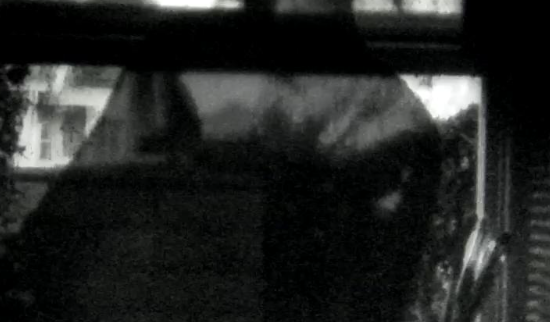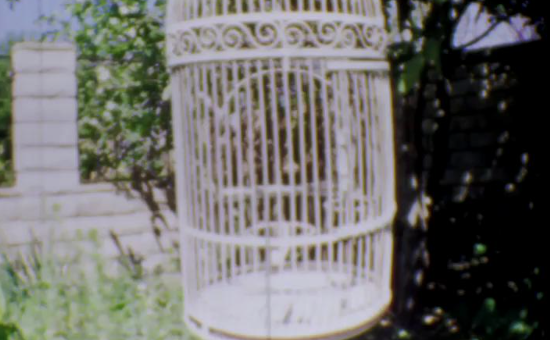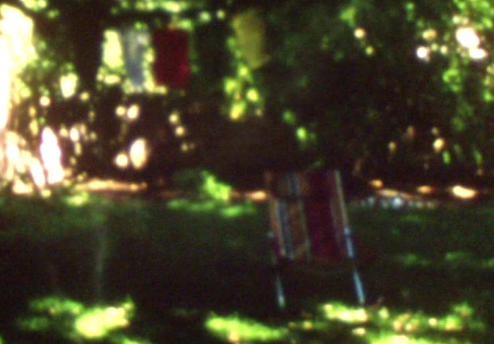Frances Kroon, a South African Cinematographer, earned her MFA at the American Film Institute. Her work is influenced by her diverse upbringing: urban and rural South Africa, England, and Honduras. Recent work includes Balloon (Hollyshorts Grand-Prix winner; nominee for the Student Academy Awards; the college Emmys; and the ASC heritage award) and Afrika is a Country (silver-screen winner at the YDA awards at Cannes Lions and best experimental film at the European Cinematography awards). She finds inspiration in communicating the common, often flawed, human experience. Her visual approach embraces imperfection as vital in creating the underlying beauty within the image.
An Interview with Frances Kroon:
 In your bio you mention being South African and growing up between South Africa, England and Honduras. How does this experience influence your creative approach to cinematography and storytelling? Do you feel part of a lineage of South African cinema?
In your bio you mention being South African and growing up between South Africa, England and Honduras. How does this experience influence your creative approach to cinematography and storytelling? Do you feel part of a lineage of South African cinema?
In terms of my creative approach, growing up mainly in South Africa with time in England and Honduras has affected me on a very gut level. Culture informs the way one sees the world and the way that one understands interactions. Considering that Cinematography is essentially a visual interpretation of emotions, I think this has a deep influence. Though perhaps one I can’t exactly pinpoint in words. My background definitely informs my aesthetic and how I approach emotions. I think also growing up in various countries does give one a certain flexibility when understanding stories from distinct cultural viewpoints. Almost as if one is more aware that the world doesn’t just exist in one way and perspectives can shift drastically.
In terms of being part of a lineage of South African cinema, I think we are so under-resourced that unfortunately our cinema hasn’t been able to flourish as much as in other parts of the world – although we have immensely talented filmmakers. At the moment as a young democratic country, I feel we are finding a new way of seeing ourselves and that is reflected in our cinema.

Your experimental film, Afrika is a Country, is a stunning allegorical piece with many layers of symbolism. Would you expand upon the aesthetic and themes of the film?
The short, Afrika is a Country, is a visual and abstract exploration of the role of willful blindness in the world: What do we choose to see and acknowledge and what do we choose not to see. It was also an experimentation with two-dimensional space and distinct color palettes, paying homage to artists including Renaissance master, Michelangelo; South African Photographer and visual artist, Ralph Ziman; Pablo Picasso’s blue period; the hyper realist sculptures of Marc Sijan; Ethiopian visual artists and photographer, Aida Mulehah; and South African street artist, Faith47. The idea was to use symbolism as a way of communicating a narrative, much in the same way one experiences a dream. The beauty of which, is that there is validity in all interpretations. Although I did have a specific idea behind it, it is as much for others to find their own narrative.
 You’ve worked extensively on both narrative and commercial projects. How does your process shift in each realm?
You’ve worked extensively on both narrative and commercial projects. How does your process shift in each realm?
Narrative is much more conceptual for me and where my heart lies. It becomes a psychological exploration of how to best communicate emotion and support performance in a subtle and unassuming yet effective way. The process involves a lot of understanding of the script; the subtext and the director’s vision for prep. While on set, the process is much more disciplined and holistic. It’s a balance of prioritizing the key moments, the aesthetic, and the consistency.
In most commercials (but not all – because some can be quite narrative based :)) – The aesthetic tends to be more the priority. One can tweak and “perfect” shots, looking for the seconds that will make it into the edit. I believe narrative requires one to keep all the images in your head in an abstract sense while commercials don’t need to be as holistic. If you miss moments, the storytelling is so fast in the cut, that you can get away with it.

What are some of the biggest challenges you’ve faced pursuing cinematography? Have you encountered different hurdles working as a DP in various parts of the world?
The biggest challenge and the biggest skill as a Cinematographer is management really. There is so much psychology involved, that one needs to be quite emotionally aware. Not only of the director but also the crew and oneself. This is so vital to working as a team.
I think being a young-looking, small, female DP is tricky because I don’t come in the usual package. There is often a period of time initially where I have to prove myself – which is natural. When working with new people often this can be a little exhausting too. There is peace when people assume your ability. I think this applies to everywhere in the world.
The biggest challenge has been learning patience. Also patience with the process of starting to shoot the projects one wants to be shooting.
 What do you look for when signing on to shoot a film? What kinds of projects give you the most satisfaction?
What do you look for when signing on to shoot a film? What kinds of projects give you the most satisfaction?
A story that I relate to emotionally. If one can’t empathize with a character, how does one know where to place the camera? Also a director that has humanity; tenacity and who I can have a laugh with. Projects that are emotionally evocative are the ones I find most satisfying. That talk about the subject matter in an authentic way and allow the viewers to experience a catharsis of sorts. Whether through drama or humor or what be it.

Are there any artists that inspire you in particular?
Philosophically, I take a lot of inspiration from the Dadaists. I feel like sometimes we try to control everything and there is an arrogance in this. In a creative process and in a collaborative process, there is another element that is at play: chance. We don’t have control over the weather; over other people; and so many other elements. I think by accepting this – we allow a film to be what it is going to be. I really like the idea as us being an instrument in the process rather than this God like creator. There is so much ego attached to that and I think it’s visible in the work. Like the Cohen brothers said – “We’re just trying to do justice to the story. We’re not trying to pee on it.”
There are some amazing artists out there: Joan Miró I really enjoy; an incredibly talented artist from South Africa called Tsoku Maela’s work is particularly beautiful. I also like a photographer called Francesca Woodman and the painter Lucien Freud.
 Looking forward, what are your hopes for your career and artistic development in the coming years?
Looking forward, what are your hopes for your career and artistic development in the coming years?
Always a tough question – Without creating too many internal expectations – it would be great to be involved in shooting more narrative films with authentic subject matter, that also have space for artistic exploration.
Contact Info:




No Comments